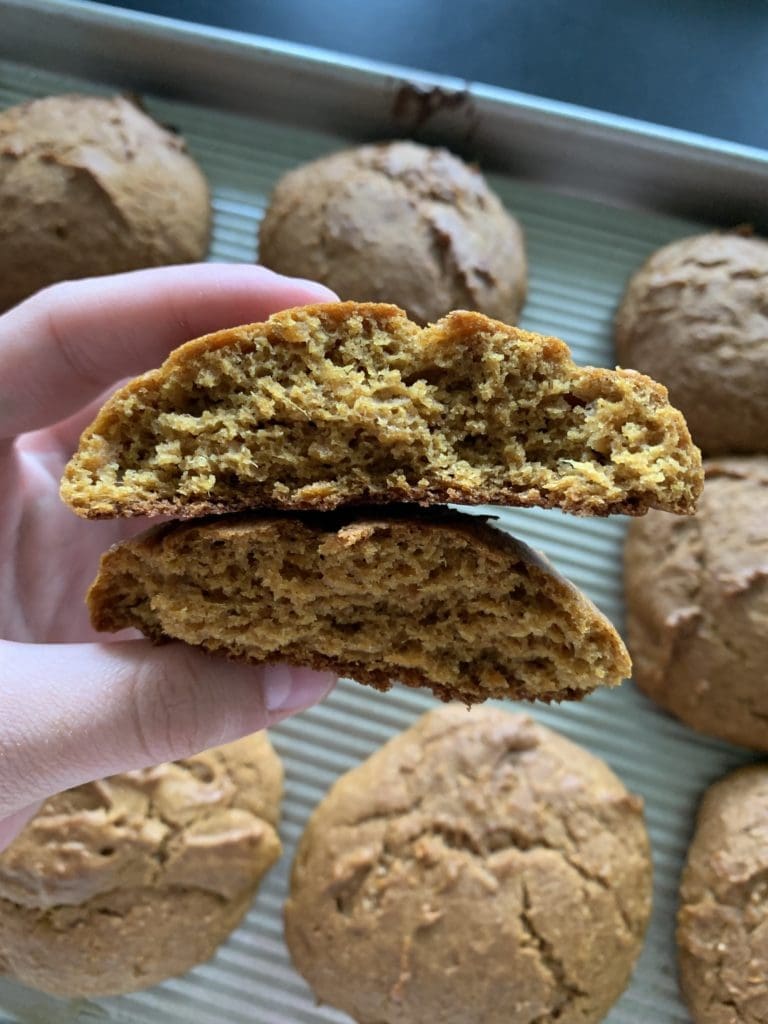By Jessica Jensen, K-State Research and Extension news service
Manhattan, KS— “Researching and developing food products? Sign me up for that.” That’s what Kansas State University food science student Sophia Brazington thought when she was considering her Spring, 2022 schedule.
Brazington’s foray into new food development started with an idea for a sweet potato muffin, eventually leading to a muffin top being included in the university’s Konza Table, a program in which students in need of food receive meal packages once a week.
“While the sweet potato muffins were not my first choice when it came to choosing a product, I knew that there was a lot of potential for experimenting with a gluten free version,” Brazington said.
The gluten free path, she said, led to many opportunities that helped her decide to develop the sweet potato muffin top, rather than the whole muffin. She said by making a muffin top, the product was less grainy and overall more enjoyable compared to other gluten free items.
Like any scientist, Brazington had early difficulties in developing her recipe. She changed small things throughout the developmental process to affect the flavor, texture and experience of the muffin top.
She notes that the original recipe used boiled sweet potatoes, but she eventually changed to baked potatoes because they were better suited to help with caramelization and sweetness. Plus, she notes, the switch reduced food waste because she was using leftover baked potatoes from K-State’s Kramer dining center.
Once she got the recipe down, she was asked to scale up her muffin tops because of the FarmUs research program.
In 2019, the Kansas Department of Agriculture and K-State were awarded a Federal State Market Improvement Grant. The award funded the FarmUs project, a farm to campus collaborative aimed at accessing consumer markets on college campuses, leverage workforce development and student innovation to create new product opportunities for sorghum and wheat.
“All of the products chosen to be scaled up are unique and we want innovative ideas that can be modified and scaled-up for a more robust use across the state,” said Kelly Whitehair, director of K-State’s coordinated program in dietetics. “Sophia’s muffin-top ‘breakfast cookie’ was the first menu item in this form for (K-State) dining services. So not only did we gain a fun, new product, but also one that is gluten free.”
Brazington scaled her new product from a dozen to 500 muffin tops for the Konza Table packages. Brazington also received feedback on her new creation.
“When you ask someone to sample a ‘gluten free sweet potato muffin top,’ people are a bit skeptical, but once I explained I was working on research for dining hall options, people were more eager to try it,” she said.
Brazington said the feedback helped her develop an even better product. “Some said that it needed more flavor, so I added more cinnamon and decreased the amount of cloves,” she said. Others told her it was grainy, so she adjusted that by folding in more whipped egg whites.
Along with scaling up the product, Brazington is developing a home recipe. She said there is not much difference in the recipes besides the amount of ingredients. However, there is a new challenge: Brazington is looking for a way to prepare a sweet potato that doesn’t include cooking it for an hour.













